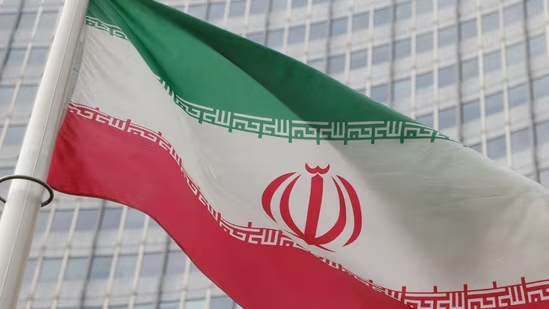Iran Bans Film Festival After Publicity Poster of Actress Without Hijab Surfaces
In a recent controversial move, Iran has banned a highly anticipated film festival after a publicity poster featuring an actress without a hijab surfaced on social media. The decision has sparked heated debates within the country, highlighting the ongoing tensions between artistic freedom and religious conservatism.
The film festival, known for celebrating Iranian cinema and providing a platform for filmmakers to showcase their work, was expected to be a significant cultural event. However, the appearance of the promotional poster showing an actress without a hijab, which is mandatory for women in Iran, triggered a swift response from the authorities.
Iran's strict dress code, imposed after the Islamic Revolution in 1979, requires all women to wear the hijab in public spaces. Violation of this code can result in severe penalties, including fines, imprisonment, or even flogging. The enforcement of the hijab has been a contentious issue in Iran, with many arguing that it restricts personal freedoms and hampers artistic expression.
The emergence of the publicity poster reignited the debate over the role of art in Iranian society. While some see the poster as an expression of artistic creativity and individuality, others view it as a direct challenge to the country's Islamic values and cultural norms.
In response to the poster, Iranian authorities swiftly took action, canceling the film festival and launching an investigation into the incident. The ban has disappointed many filmmakers and film enthusiasts who saw the festival as an essential platform to showcase Iranian talent and promote cultural exchange.
Artists and activists have voiced their concerns, expressing that such actions stifle creativity and inhibit the growth of the Iranian film industry. They argue that artistic expression should be celebrated, and filmmakers should be able to tell their stories without fear of censorship or punishment.
On the other hand, conservative groups and religious leaders maintain that adhering to Islamic principles and preserving traditional values is crucial in safeguarding the country's identity. They see the hijab as an integral part of Iranian culture and believe that any deviation from these norms could lead to moral decay and undermine the country's religious foundation.
The ban on the film festival highlights the complex balance that Iran must navigate between its cultural heritage and the aspirations of its people for greater artistic freedom. It also underscores the challenges faced by artists in the country, who strive to create thought-provoking and boundary-pushing content while staying within the confines of the law
As the debate rages on, the issue of the hijab and artistic expression remains a highly sensitive and polarizing topic in Iran. Finding a middle ground that respects both religious values and artistic creativity continues to be a challenging task for the Iranian government and society at large.
In the international arena, the ban has also drawn attention and raised concerns about freedom of expression in Iran. Calls for respect for artistic freedom and human rights have echoed from various corners of the globe, urging the Iranian authorities to reconsider their stance on the matter.
As Iran grapples with the aftermath of the banned film festival, the country faces an opportunity to engage in a constructive dialogue that addresses the concerns of all stakeholders involved. Balancing the preservation of cultural heritage with the desire for artistic innovation will require open conversations and a willingness to embrace diverse perspectives in shaping the future of Iranian cinema. Only through such inclusive efforts can Iran hope to reconcile its rich cultural legacy with the ever-evolving nature of the arts.

.png)
Comments
Post a Comment